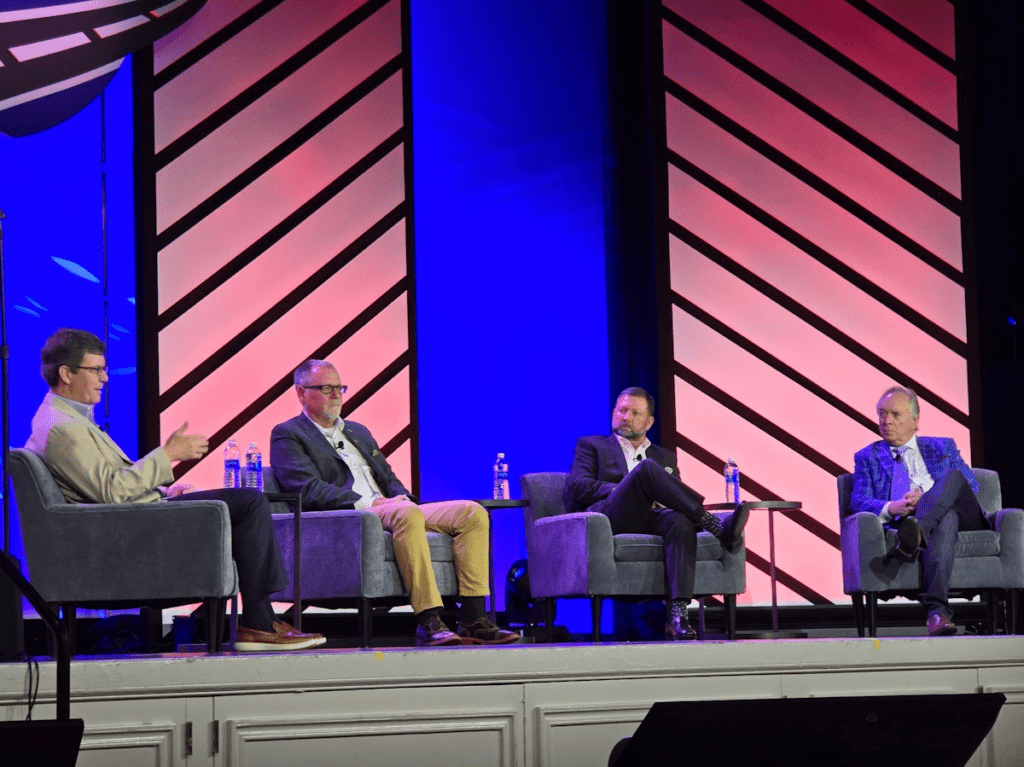Mergers and acquisitions in the trucking sector are primarily driven by strategic growth initiatives, market consolidation, and various operational, financial, and regulatory factors. However, research from the Harvard Business Review indicates that between 70-90% of acquisitions fail to meet expectations.
During a panel discussion at the Truckload Carriers Association’s annual convention in Nashville, Murray Mullen, chair and president of Mullen Group, emphasized the importance of having a clear understanding of acquisition objectives. Reflecting on his experiences, Mullen acknowledged that he has made mistakes when he failed to “do his homework” and focused solely on growth without considering overall strategy. He advised carriers to ensure their acquisition strategy aligns with their goals and the timing of any potential deals.
With numerous opportunities available, Mullen stressed that carriers must adopt a long-term strategy. He pointed out the current challenges posed by high-interest rates, making acquisitions particularly complex; while the bid/ask situation seems acceptable, the actual costs involved can be prohibitive.
The integration of merging companies often faces cultural challenges. Aligning different organizational cultures, values, and fostering collaboration is critical for a successful integration post-merger. Jim Richards, president and CEO of KLLM Transport Services, took a different stance about the timing of acquisitions, emphasizing the importance of preserving the existing company culture. He stated that they are selective with acquisitions to protect the culture they’ve developed, especially concerning safety. He noted that KLLM has successfully made three acquisitions while passing on “about a thousand” due to cultural mismatches.
Mark Rourke, president and CEO of Schneider National, predicts that the upcoming years, 2024 and 2025, will present attractive opportunities for mergers and acquisitions. He reflected on his past acquisitions, highlighting the necessity of learning from failures and defining success. Rourke explained that it’s vital to target well-operated companies that require minimal turnaround efforts.
Addressing Rising Insurance Costs
The issue of rising insurance costs is becoming a significant concern for carriers. According to the American Transportation Research Institute’s Operational Costs of Trucking report, truck insurance premiums rose from 6.4 cents per mile in 2013 to 8.8 cents per mile in 2022. Discussing the minimum insurance requirements that could rise from $750,000 to $5 million, Richards pointed out that the high costs of litigation mean one incident could quickly surpass the minimum coverage. He articulated the need for adequate coverage while expressing frustration that his company’s premiums increased by 40% despite having no claims over four years, stating he prefers insurance rates based on company performance rather than industry-wide issues.
Political Implications on Regulations
As elections approach, industry executives have discussed potential changes in regulations based on the outcomes. While acknowledging that some regulations are beneficial, Mullen expressed concern that the overall regulatory environment stifles innovation and capitalism. He emphasized a need for regulations that enable growth rather than conforming to uniformity.
The Challenge of Zero Emissions
The push for zero-emission commercial vehicles is gaining momentum, though practical challenges remain. Richards acknowledged supporting EV regulations while emphasizing the importance of considering the relevant timelines and technological capabilities. He noted that the technology isn’t ready for long-haul applications yet, and even when it is, the associated costs are uncertain. In December 2023, Schneider National deployed 50 battery-electric Freightliner eCascadia trucks, achieving over 2 million miles with their electric fleet. Rourke stated that managing power distribution remains the largest challenge and warned that transitioning to electric fleets will require long-term planning. Mullen echoed concerns about the need for technological advancements to keep pace with regulatory demands, while also addressing the ongoing reliance on oil and the desire for practical energy solutions.


